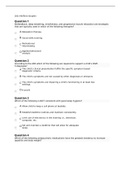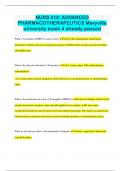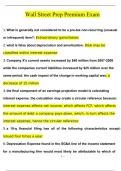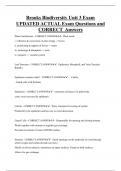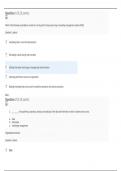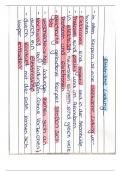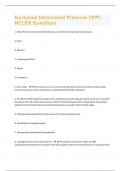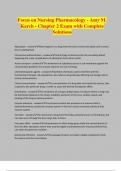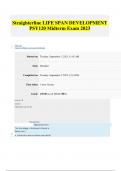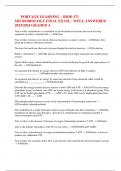Exam (elaborations)
2024_MidTerm NRNP6665 / 2024MidTerm Seraphin NRNP 6665 100 questions answered and graded.
- Institution
- Walden University
2021 MidTerm Seraphin Question 1 Biofeedback, deep breathing, mindfulness, and progressive muscle relaxation are strategies that are typically used in which of the following therapies? A . Relaxation therapy B . Social skills training C . Motivational Interviewing D . Applied behavioral analysis Qu...
[Show more]
